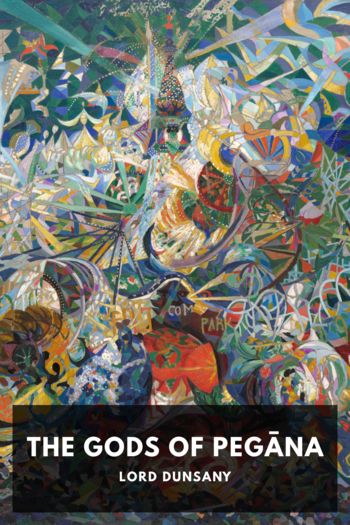It's the End of the World : But What Are We Really Afraid Of? (9781783964758) by Roberts, Adam (reading in the dark .TXT) 📗

Book online «It's the End of the World : But What Are We Really Afraid Of? (9781783964758) by Roberts, Adam (reading in the dark .TXT) 📗». Author Roberts, Adam
That said, and without ignoring the ghastliness of these cases, disease never wipes out literally everyone on its own. Even in the case of the Palawans it required war, killing, starvation and colonial oppression to finish that terrible job. The biggest epidemic of the twentieth century was Spanish flu in 1918–20. As many as 100 million people died globally; but grievous though this certainly was, it represented less than 5 per cent of the world’s population. I don’t mean to sound dismissive, because of course 100 million is a horrific and devastating figure, but it didn’t come anywhere near ending the world.
In reality, the risk that the white horseman of Revelation, wielding his deadly plague, will destroy the whole world has been receding for a long time. As the global population increases, and as globalisation mixes up populations, epidemics have less bite, thanks to a better understanding of how to prevent the spread of disease, and the twinned healthcare countermeasures of immunisation and the improved treatment of those who fall sick. But the perceived risk keeps rising, because we are more aware of the specificities of disease and how devastating they can be. Global life is interconnected nowadays to an unprecedented degree, and ‘interconnectedness’ is a shorthand for ‘possible pathways of contagion’. Popular culture and contemporary social commentary are subject to repeated bouts of ‘pandemic anxiety’. The BBC TV show Survivors (1975–77) vividly realised this in its opening credits: one man, infected with a terrible new plague but as yet unaware, is shown flying from airport to airport, getting his passport stamped. The actual show, set after the plague had killed 4,999 out of every 5,000 people, dealt with the consequences. The virus in that show was fictional, but the hit 1995 movie Outbreak imagined an Ebola-like virus spreading from Africa to America. The movie perks up its storyline with fights, chases, military conspiracies to develop the virus as a bioweapon and a plan to bomb an American town to contain it, to melodramatic effect; but it opens with real-life molecular biologist and Nobel laureate Joshua Lederberg informing the audience: ‘the single biggest threat to man’s continued dominance on the planet is the virus’.
These fictions inform our reality. Fear of H5N1 avian flu caused widespread panic in the early 2000s, and the mere prospect of an outbreak of Ebola or the Zika virus terrifies us today. Sometimes those fears prove grounded – as we all found out with the outbreak of Covid-19. But despite the global disruption and the devastation caused by individual fatalities, it was not heralding the apocalypse. Of course it makes sense to take precautions where any disease is concerned, but panic and overreaction is neither sensible nor precautionary.
My point is that disease plays an actual as well as a fantastical role in our lives, and it is the latter that is often apocalyptic. While the individual experience of disease can be horrible and may be fatal, it is in the nature of apocalyptic imagining to extrapolate individuality onto the global canvas.
Besides the scale of imagined devastation, the other fictional element we ascribe to our pandemics is agency – a sense that they have purpose, that they are not merely random. When the Peloponnesian plague targeted only Athenians, contemporaries concluded that the gods were angry with Athens, and when HIV first appeared in gay communities, some concluded that God was angry with homosexuals. Neither statement was true; HIV spreads wherever it can and doesn’t care about your sexual orientation. Nonetheless, when it comes to our suffering, we want it to mean something. We dislike arbitrariness. We want to understand why it’s happening, so we can fix it, or try to, but also for the less rational reasons that we prefer an enemy with a face to a faceless one. We want to feel we can fight back, even if the fight is impossible, like homeowners shooting their guns at the hurricane they know is rolling in to destroy their houses. We can see this desire to assign ‘agency’ to the virus in those who insist that the coronavirus is a Chinese experimental bioweapon gone rogue, or supporters of Donald Trump who see a shadowy conspiracy of ‘deep state’ actors happy to sacrifice millions of lives in a plot to scupper their president’s re-election prospects. To them, even malign actors are more reassuring than blind happenstance; angry gods are better than no gods at all.
However, it is not true – disease has no agency. Bacteria and viruses spread wherever they can, their paths facilitated by our massively globalised world, and we bring our ever-improving drugs and hygiene to the struggle. One lesson we have all learned from the coronavirus pandemic, repeated over and over again by the experts, is that the best advice is to wash your hands often, avoid touching your face and keep as much distance between yourself and others as possible. But people do not warm to the arbitrary nature of this. People prefer a plan. ‘You know what I’ve noticed?’ says the Joker in Christopher Nolan’s Dark Knight (2008). ‘Nobody panics when things go “according to plan” . . . even if the plan is horrifying.’ It doesn’t reflect very well on us, but it’s true. Because what’s the alternative? A Jokerish anarchy?
This need to attribute agency to the disease is clearest in the many plagues that writers





Comments (0)